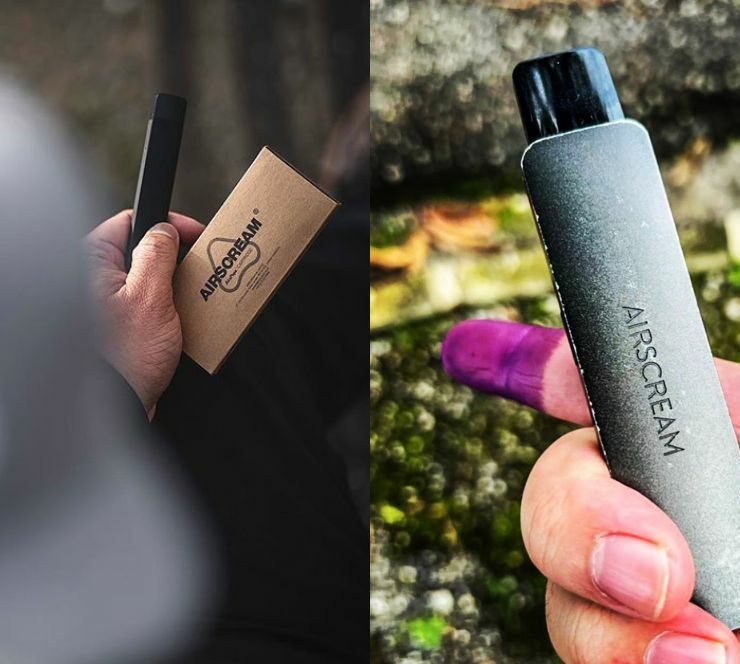All Eyes Now on Dr Dzul to Address the Vaping Epidemic [Opinion]
The government is due to confirm details of the regulations and we know the devil is in the details.
By TRP reader Lee Chong Kiat from Klang
Now that the Dewan Rakyat has passed the Control of Smoking Products for Public Health Bill 2023, the path is set for Malaysia to truly address the vaping and smoking epidemic.
We know from various government and private surveys that smoking rates are unchanged. According to the National Health and Morbidity Survey 2022, e-cig and vape have the highest prevalence among currently used tobacco products which is three times higher compared to manufactured cigarettes.
The government is due to confirm details of the regulations and we know the devil is in the details when it comes to the success or failure of new laws in this hotly contested health space.
The Health Ministry now also has a bonus in their newly appointed returning Minister, Datuk Seri Dr Dzulkefly Ahmad. Dr Dzul was the architect for the Ministry’s successful treatment of Covid during the pandemic.
Moreover, his beyond-health experience was critical as Malaysia coordinated a balance between health and livelihoods; striking the right ingredients for the rakyat to maintain their incomes whilst keeping Covid rates low.
As he now addresses the issue of vaping, this pandemic-era experience will be critical for Dr Dzul as he strives toward a middle-ground approach to handling vape. As public health experts locally and internationally will highlight, strict regulations alone will not be enough to ensure Malaysia’s vaping rates go down. You cannot simply legislate an issue away.
In fact, we know from case studies abroad that the stricter a government cracks down on something, the more attractive that substance can become. It’s a simple case of reverse psychology; the more a government bans a book or a movie, the more in-demand that product becomes.
So, what can be a middle-ground approach for handling vaping? What is the right balance?
Effective tobacco control transcends legislation; it’s deeply rooted in education and transparency. Informing the public about the effects of vaping is crucial in empowering individuals to make healthier choices. The tone of the Ministry, and in fact in all public health issues, must shift from “do not do” to “the choice is yours, but here are the consequences”. The Ministry simply does not have the manpower to police an entire rakyat on their personal health choices, but it has the influence to give people the right information on the impact of their decisions.
This shift in tone also has positive reverberations; those seeking help will feel less stigmatized and marginalized to approach government health-support centres, and the government’s more open approach will likely provide the Ministry more information on the real issue at hand.
Imagine setting up a satellite ministry centre in an outskirts kampung aimed at helping rakyat stop vaping; more people would be willing to approach that centre if they knew they would not be criticized or punished for even starting the habit. As a result, the Ministry itself becomes empowered to help that individual.
But of course, education alone is not enough.
The government must employ a creep-in strategy if it wants effective regulation. In other words, don’t do everything all at once, do it progressively. Anyone that cooks will know that you don’t throw a lobster into a boiling pot (that’s torture), you put it inside a pot then slowly boil it.
This approach can be employed for all sorts of details.
For example, the Ministry can look at nicotine strength levels in vapes and limit it to an enforceable amount. Thereafter, the government can slowly reduce that strength to further protect users. A small reduction yearly can prove fundamental (and more effective) in a 5-year period. “Sikit sikit, lama-lama jadi bukit.” If you immediately make the nicotine strength too low, current users won’t be satisfied and they will simply search for illicit means of finding their pleasure.
Another example could be in sales display restrictions. MOH had mentioned in the recent Special Select Committee on Health meeting of introducing a “Point of Sale Display Ban” (POSD ban). We saw from the National Morbidity survey that 37.5% of vape users are already obtaining their vapes from friends or colleagues. So, we know from government research itself that a ban on the display of products may not be effective. The POSD ban will increase the average customer time-to-serve. In Australia, the POSD ban led to a 25 to 30-second increase in customer serving time, translating to around USD 4500 to USD 9000 increase in operating costs for retailers. In fact, the fear here is that if sales outlets are completely faced with a POSD ban, the number of users obtaining their vapes from friends will increase because of the increased queues during peak hours and customer dissatisfaction. This is dangerous as the Ministry then loses control.
Regulating stores is a lot easier than regulating social circles. There is also no certainty that those products sold will pass the Ministry’s standard vetting for safety. Rather than a complete display ban, other more progressive measures can be taken.
A middle-ground approach is also possible in terms of flavours. The Ministry can begin by allowing only a few basic flavours, then when the consumer market is controlled, it can slowly take away certain flavours. Again, let the lobster boil slowly rather than shock it.
As the responsibility now shifts away from Parliament and onto the Minister, Dr Dzul is the ultimate focal point in how Malaysia can address its youth smoking epidemic. All eyes will be on Dr Dzul on whether he will be a hawk or a dove, or better, a combination.
If you’d like to have your opinion shared on TRP, please send it via email at editorial@therakyatpost.com with the title “OPINION:” or through social media on TRP’s Facebook, Twitter, Instagram, or Threads.





